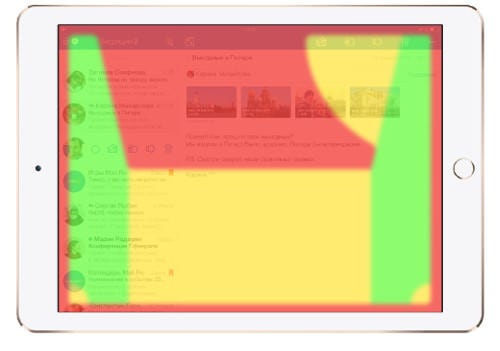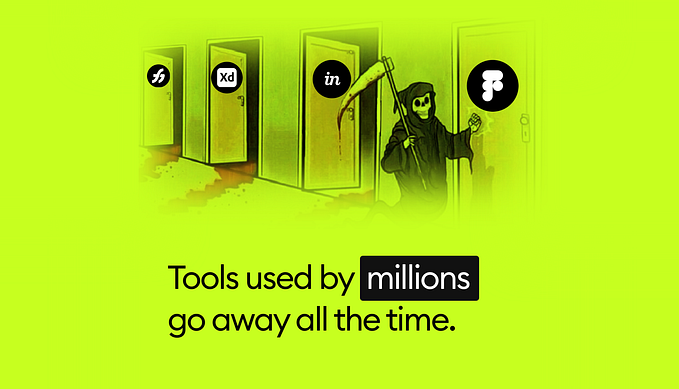The user experience of content blocking on Facebook
Facebook is the place you go to chat with friends and get likes on your vacation photos. But in Russia, the way users interact with Facebook differs significantly from other countries. In Russia, there are two social networks VKontakte and Odnoklassiniki are used for sharing photos and chatting with friends, while on Facebook everyone shares mainly professional and business topics. Facebook for Russians is LinkedIn for representatives of western countries. For instance, a doctor would write that a drug has stopped being imported into the country, a recruiter would invite you to see new job openings, and a product manager would tell you about the experience of going through a new course on CustDev. I am also no exception; I have more than 5 thousand followers with whom I share the results of my researches, the achievements of my team, and news about essential technologies.
And then I wake up one Saturday morning, and I see that my last two Facebook posts have been banned with the following message: “This post goes against Facebook Community Standards.”

What the posts were about

The first post was about me getting a new job as a UX curator in one of Moscow’s universities. Started my new job at National Research University Higher School of Economics. February 19th — User Experience Curator Moscow, Russia

The second post stated that I’m going to run the most massive offline course on UX Research in Russia together with 13 colleagues.
📚 We have created the most extensive course on UX Research, which will be taught at the HSE from April to June.
👨🎓 If you plan to enter the profession, you are welcome to visit http://product.hsbi.ru/ux-research
👩🔬 If you personally hire researchers, email me directly. This is your chance to recruit course graduates — in the end, we plan to get capable junior UX researchers.
What I could do about the bans
Facebook offered me two options: delete the posts or request review.
I read all of the Community Standards and, of course, I couldn’t find anything that confirmed that the posts should be banned.

What could have happened
I wrote a post with the information that some of my posts have been banned and asked my followers what they think as to why this happened. I will list their assumptions below.
Someone clicked on “Report post”
Facebook does not say how many people need to report a single post for it to be banned. Also, Facebook does not tell you why your post was banned. It is possible that someone could have reported my posts, but why? I have no competitors, nor was I representing my business in these posts and I’m not a well-known Instagram blogger with whom someone has to fight for advertising revenue. I can only assume personal disdain.
Facebook’s algorithms considered the posts to be advertisements, and you have to pay to advertise
One of my friends on Facebook told me that he had seen another one of his friend’s post banned with the message — “Do not advertise anything on your personal page.”
I have some questions about this theory:
1. This is my personal page, and I often add links to posts. Can’t I put links in posts now? If so, why is it that all the rest of my posts and all my friends are not banned from Facebook?
2. Why is the post where I reference my new job also banned? Is this also an advertisement?
3. References to the fact that Facebook is a free product and therefore I have to just put up with do not satisfy me either. Facebook has access to all my content, to all my contacts, to all my messages in its Messenger. From the use of this data, the company makes a profit.
Possible solutions
So here I am on my page, minding my own business, writing my content for my audience and suddenly, for reasons unbeknownst to me, the service I am using to share this content blocks my information. If I were to present an analogy, it would be as if I bought a car, and one day I cannot open it, and a robot calls me and says: “you violated our rules, access to the car is now blocked,” and it hangs up. Meanwhile, I am are standing next to the car and without the slightest clue of what to do — what were the rules I broke, why have you blocked me?

I suggest that Facebook directs its focus not only on reports from users but also actually to analyze the content itself. Facebook may be already doing this, but it apparently isn’t working very well. For example, Google Cloud offers an API for recognizing natural language in a text, as well as images and text in images.
Here is how Google recognized my posts:


Google did not find any violations for to which my post would be banned on Facebook.
Facebook is created in a democratic country in which freedom of speech is the inalienable right of a citizen. What sequence of actions do I expect from Facebook when evaluating a post for compliance with my own standards.
1. After users complained, run the check algorithm
2. If the algorithm shows a violation of the rules — ban. If the appeal follows — view manually.
3. If the algorithm shows that the post complies with the rules, it should be kept. And if the complaints continue, the post must be reviewed manually.
Posts must be manually reviewed by at least three people. If only one of them believes that there are problems with the post, then post should be sent for an additional check to the supervisor.
In the meantime, two days have passed. I’ve had a response from Facebook’s technical support that they got my claim, but the posts are still blocked.
Have you ever experienced a situation which was similar to that?











